- Learning time
- 40 minutes
- First play time
- 120 minutes
Sherlock Holmes: Consulting Detective
Designed by: Gary Grady,Raymond Edwards,Suzanne Goldberg
Sherlock Holmes: Consulting Detective is far from a typical game – there is no board, no dice, and no cards. What there is instead is a series of mysteries for you to solve utilising the tools at your disposal – a copy of the day’s newspaper, a map of London, and a reference book for each of the mysteries that contains a series of potential encounters in your investigation.
Each mystery has an introduction with a clue or two from Holmes himself, giving you an oblique pointer. Beyond that, you are on your own: your job is to peer through the paper for leads, and then find matching names and addresses in the supplied address book. The postcode of each will (or may) guide you to an entry in that mystery’s book, which is read out to all players. It’s like a choose-your-own-adventure story, except many entries are dead ends, and players return to talking, paper-scrutiny, and pondering.
When you’re stumped as to how to proceed, though, there are sources you can lean on: Lestrade of Scotland Yard, Porky the dubious landlord, the gossip columnist, and so on. Each of them will have a little something to say about the case that may – or may not – help you with a breakthrough in the case. However, the game does have a scoring system of a kind and the more times you lean on these helpers, the less you’ll score overall.
When you think you’ve got to the bottom of the case (or you’ve given up), you can turn to the back of the mystery book and answer questions: who was the killer? What was the motive? – and so on. And of course there is also a solution to be read out, where Holmes gets to make everyone feel a little inferior. Oh, Holmes!
Joe says
This is an enduring classic, and there is very little else like it. It's almost a 'reading game' - few games offering such a satisfying solo experience, and if you're a Sherlock Holmes fan to boot it's absolutely made for you. I've enjoyed my dabbling, with one caveat - the logic involved in solving these sorts of mysteries always seems to me to be a little bit arbitrary. I find myself conjuring multiple plausible motives and suspects, and sometimes the solution seems to simply have chosen one plausible possibility over another. That's a very personal quibble though - and probably more down to my lazy detective work and love of single-solution puzzles than anything else.
The guru's verdict
-
Take That!
Take That!
None - the game can be played solo, or co-operatively.
-
Fidget Factor!
Fidget Factor!
It depends on how you feel about the inherent head-scratching. Strictly speaking, everyone is involved all the time, but younger players especially may feel the game could move faster.
-
Brain Burn!
Brain Burn!
The rules are pretty light. The brain-burning is the deduction, and the occasional lateral leaps that Holmes makes rather casually and players may find a wee bit harder.
-
Again Again!
Again Again!
There are ten mysteries to be solved, so that's at least ten hours play in the box (probably closer to twenty). Leave it long enough and you can play them again when your memory is foggy! Note that each mystery is theoretically a little tougher to solve the ones that came before.

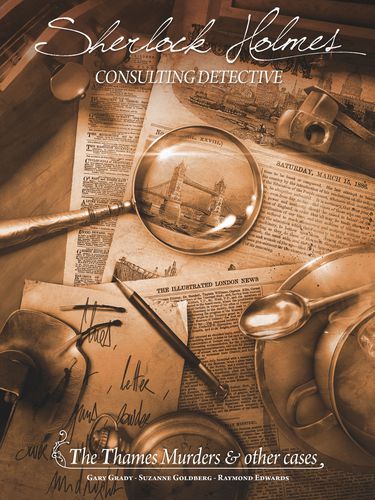
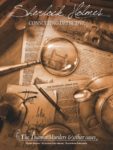
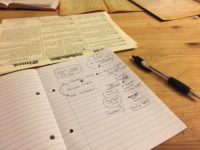

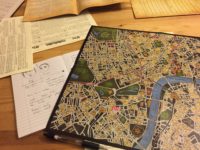


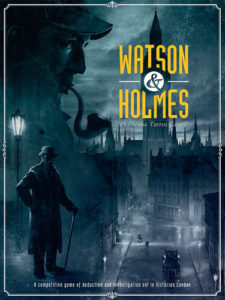
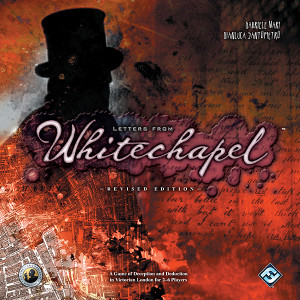
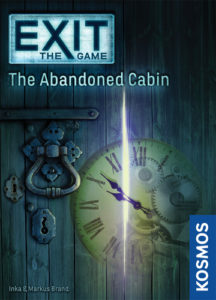

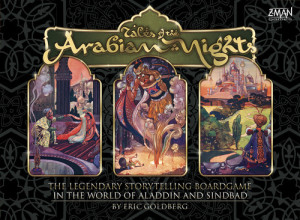
Sam says
Deduction isn't a strength of mine, but this is a really interesting take on what a 'game' can be. No turns, no rolling dice or card play - just conversation, thought, and genuine detective work. Unlike more modern deduction games like Exit or Unlock, there is no linear path to be found here, just a series of clues to be pieced together in whatever order you uncover them. It's probably too opaque and slow-moving to be considered a 'family game' in the traditional sense, but puzzle solvers and fans of cooperative play may really enjoy this.